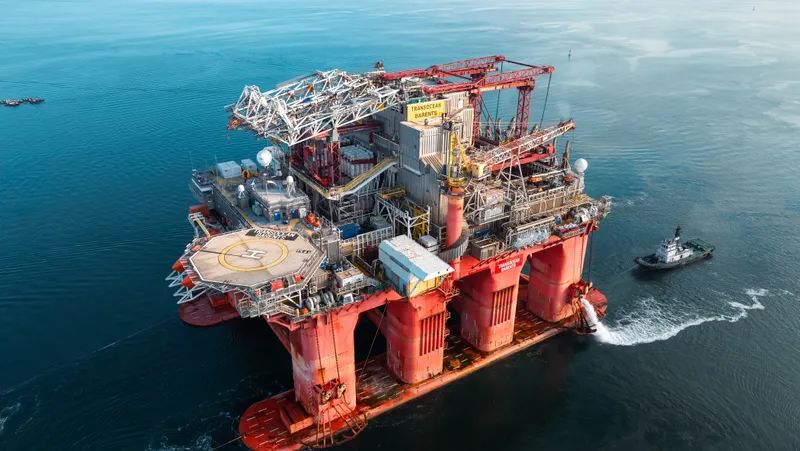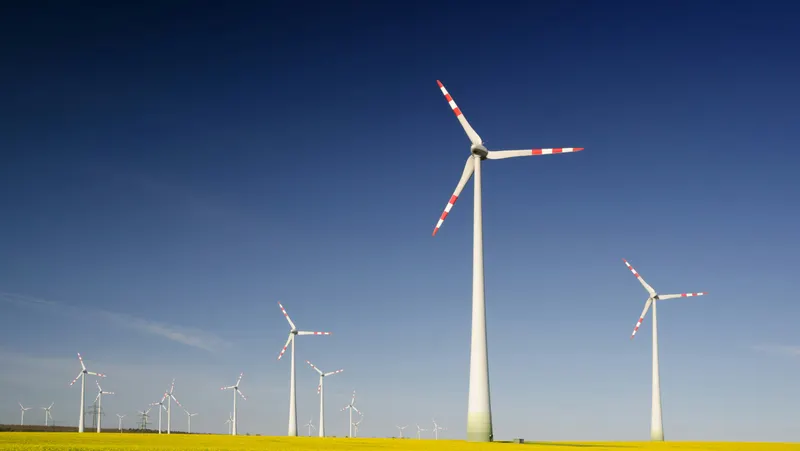OMV Petrom's Strategy 2030

Continuing to provide - safely, securely and responsibly - the energy needed for today, we have embarked on a transformation path towards a lower carbon future. A future in which we are investing ~€11 bn between 2022-2030.
Our Strategy 2030 is a bold roadmap to transform our company with through three strategic pillars: Optimize traditional business, Grow Regional Gas and Transition to low and zero carbon. With ~€11 billion in planned investments, it is also the largest private investment in Romania’s energy sector, supporting the country’s energy transition and strengthening regional energy security.
The Strategy, launched in December 2021, has proven resilient despite global volatility and successive crises. Thus, in a changing energy landscape, with a growing demand and a need for lower GHG emissions, in June 2024 we reiterated our strategic ambitions while adjusting the pace for some low and zero-carbon projects. Lead by clear goals, we have accelerated our shift toward renewables, set even more ambitious e-mobility targets and reduced targets and pace in biofuels, all while focusing on rigorous capital discipline and strong financial performance to deliver long-term attractive returns for our shareholders.
Our ambition is to lead the energy transition in Romania and South-East Europe.
We invest in projects with double-digit returns, capitalize on opportunities in emerging markets and deliver value for stakeholders while transforming for a lower carbon future. According to our Strategy, our financial frame envisions:
- Rigorous capital discipline: ~€11 bn investments between 2022-2030, thereof ~20% in regional gas growth, with Internal Rates of Return of at least 10% / project
- Strong financial performance: 2030 Clean CCS EBIT of >€1.5 bn and ROACE ~15% by 2030
- Attractive returns to shareholders: 5%-10% p.a. dividend growth, 40% - 70% of OCF yearly allocated to dividends (base and special), while maintaining a gearing ratio* <20% (*single year rate)
OMV Petrom 2030 Strategy will drive performance through three key pillars:
Transition to low and zero carbon
By 2050, OMV Petrom aims to have net zero operations, supporting Romania’s decarbonization. By 2030, a greener and more diversified portfolio will be reached by investing in renewable power generation, biofuels, alternative mobility and new technologies. Since 2021, we have achieved significant milestones:
- a portfolio of >2.5 GW (with partners) wind and solar projects and expanded regional presence in Bulgaria
- Consolidated our position as 1st choice mobility provider in Romania with the acquisition of Renovatio network and ~1,000 charging points installed
- A frontrunner in renewable fuels in SE Europe: construction ongoing for 250 kt/year SAF/HVO and ~8 kt/year (55 MW) green hydrogen
- Investigating additional low-carbon opportunities such as: energy storage, hydrogen, carbon capture and storage (CCS), geothermal, biogas.
Grow regional gas
Natural gas is a key enabler for decarbonization. Company aims to increase the share of gas in its portfolio to ~70% in 2030. In this regard, Neptun Deep is a strategic project for OMV Petrom, for Romania and for the region.
The extensive knowledge acquired in more than 40 years of operations in the Black Sea can help unlock potential for further growth beyond Romania and position OMV Petrom as the partner of choice in the region.
Neptun Deep entered the development phase, following the final investment decision taken in June 2023. We are progressing with development drilling and the project is on track to deliver the first gas in 2027.
OMV Petrom is also progressing in the Han Asparuh block, Bulgaria, where we transfered a 50% interest to our partner, NewMed Energy, while maintaining our role as operator. We are actively pursuing exploration activities and we awarded the drillship contract.
Optimize traditional business
While demand for green energy grows, OMV Petrom is well positioned to capture the resilient demand for conventional fuels and gas, contributing to Romania’s security of energy supply. We continue to transform our existing assets and capitalize on our integrated business model.
In Exploration & Production, we are working on mitigating the natural production decline (<5% p.a.*), prioritizing value over volume and strict cost management. In order to maximize the potential of our current assets, we plan to drill around 50 new wells and perform more than 400 workover jobs annually.
*2024-2030 average annual decline in traditional hydrocarbon production, before divestments and excluding Neptun Deep volumes)
In Refining & Marketing, the Petrobrazi refinery is well-prepared for high utilization rates and shifting production towards higher-value products, focusing on efficiency and sustainability, diversifying non-fuel products and expanding the biofuels value chain.
Regarding the OMV and Petrom filling stations, our long-term ambition is to continue to be the customers’ first choice in Romania, while capitalizing on our position in the other markets where we operate. As a leading provider of products and services for mobility in the region, we aim to drive value through partnerships and increased customer loyalty.
In Gas & Power the company is extending its origination and trading activities, beyond equity gas, to meet increased gas demand. Neptun Deep gas will contribute to a total of approximately 60 TWh in gas sales by 2030. Meanwhile, the Brazi power plant will support Romania’s green power transition, by integrating it with renewables and storage capacities for a better response to our customers’ needs. Around 30% of the total power sales will be green by the end of the decade, aiding Scope 3 emissions reduction and customers’ transition to cleaner energy.
Projects
Disclaimer:
The information herein represents the strategic directions of OMV Petrom and may be interpreted as forward-looking statements subject to uncertainties, risks and regulatory changes which may cause the actual results/performance of OMV Petrom to be materially different. Under no circumstances may be deemed as representation/warranties of OMV Petrom or of its management regarding the company’s’ future results as well as a recommendation/ offer / invitation to subscribe for or purchase any securities.


